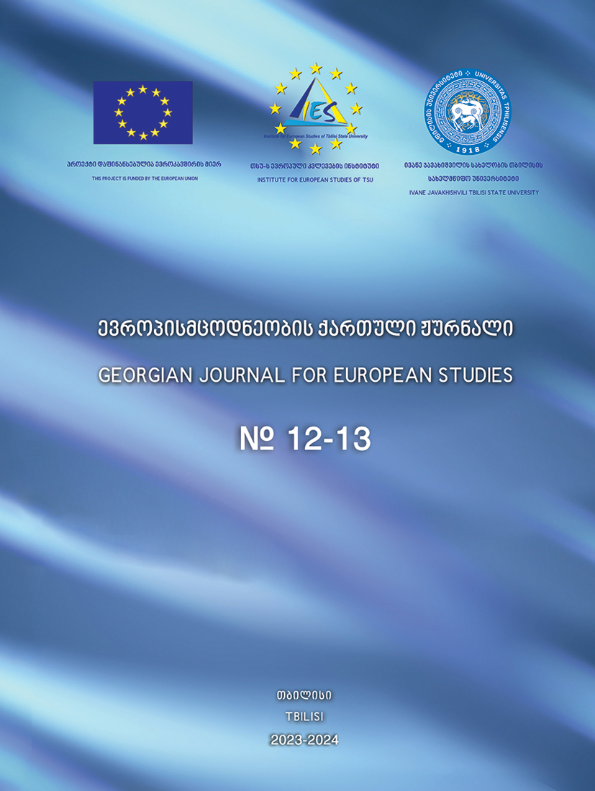The Attitude to the EU Integration of EthnicAzerbaijani Women of Georgia
Keywords:
Attitude to the EU integration, activism, SEM, SMART-PLS, ethnic Azerbaijani women, minorityAbstract
Since the early years of independence, Georgia’s foreign and domestic policies have been primarily focused on achieving European integration. Substantial reforms are necessary in nearly every field, as well as public support for the EU’s development and a greater knowledge of European values, in order to fulfil the undertaken obligations. The importance of European integration and cooperation, as well as the opportunities they bring, should be understood by every member of society, including women and minorities.
The paper analyses the factors that influence attitudes towards the EU integration of ethnic Azerbaijani women in Georgia. The study’s primary research question is how knowledge of the official language, education, innovation, and activism influence attitudes towards the EU integration of ethnic Azerbaijani women of Georgia, and activism was used as a mediator variable between state language knowledge and attitudes towards EU integration. A total of 380 people participated in the survey. The poll was conducted in a hybrid fashion, with the questionnaire being delivered in regions of Georgia (Marneuli, Gardabani, Bolnisi, and Dmanisi), where the ethnic Azerbaijanis compactly live, in June 2022. A structural equation model (SEM) via Smart PLS was used to analyse the data and check the hypotheses. The research found a significant positive relationship between attitudes to EU integration and education on EU-related issues, knowledge of state language, innovation, and activism.
Furthermore, it was confirmed that activism mediates the relationship between state language knowledge and attitudes towards EU integration. Therefore, the study recommends the enlargement of the minority integration programs in the regions, primarily directing the grants for programs that increase minority women’s activism. In addition, regional Civil Society Organisations’ (CSO) involvement in minority issues and training in minority languages are advised.


